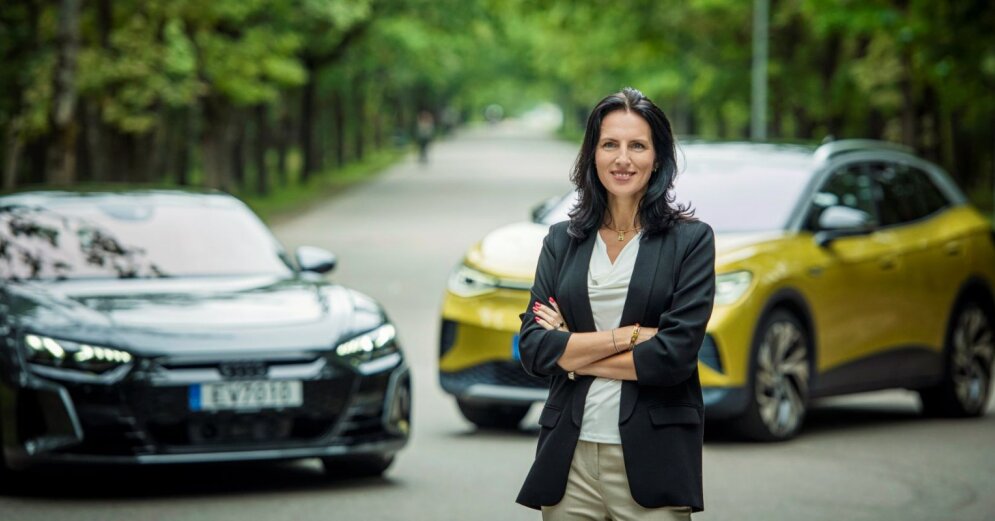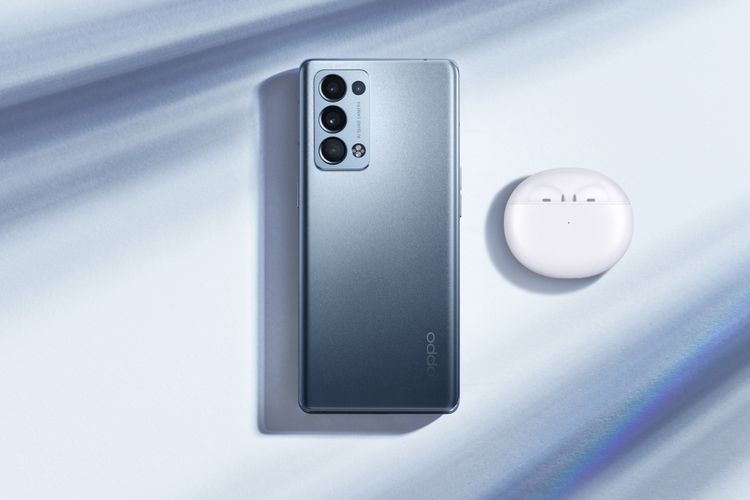Demonstrating success in the first seven months of 2021, “Audi“car importer in Latvia and Lithuania and”Volkswagen“(VW), an importer of passenger cars and commercial vehicles in the Baltic States, reports not only a recovery in the Baltic market, but also its rapid growth.
–
–
Content will continue after the ad
Advertising
–
Compared to the first seven months of last year, the number of cars delivered by Audi and VW has increased by more than 40%, but the number of orders has reached an all-time high and increased by 108% compared to the first seven months of 2020.
There are two main factors contributing to the current market recovery. Firstly, it is a resurgence of consumer confidence, followed by a growing interest in the VW and Audi product portfolio, in particular the range of SUV models.
VW reports that sales of SUVs have increased and now account for 55% of the brand’s total sales, compared to 38% in the first seven months of 2020. The most popular model is the VW Tiguan, followed by T-Cross and T-Roc, which jointly dominate the most popular small SUV segment. Audi, on the other hand, reports great interest in the Q5 and Q7 areas, which attract customers the most.
Secondly, this is a significant increase in interest in electric and hybrid cars – sales of electric cars in Latvia have increased by more than 113.7%, sales of VW and Audi electric cars have increased by more than 142.1% and VW is the first choice among new electric car buyers in the Baltics with a market share of almost 28%.
VW Light Commercial Vehicles is also one of the leaders in the electric vehicle segment, with e-Crafter being the company’s most popular car in all the Baltic States.
At the same time, consumers in all Baltic countries are also boosting demand for hybrid cars – the new Tiguan eHybrid has been able to grow sales by 20% in just a few months of launch, attracting customers with an economical and environmentally friendly solution. In the Premium market segment, Audi’s market share for electric and hybrid cars has grown from 3% to 15%.
“Despite the continuing volatility of the automotive industry and the world as a whole, we have managed to achieve our most ambitious goals in the first seven months of the year. We see that customer confidence has returned and we are pleased with the confidence they are showing in VW and Audi.” We hope to continue this growth for the rest of the year, but it will be a difficult task given the manufacturing difficulties caused by the global semiconductor shortage. usually, ”emphasizes Ilze Grase-Ķibilde, CEO of Audi and VW car importer (pictured).
Continuing the successful trend of electromobility and digitalisation, VW’s market share in the Baltic States has increased by almost six percentage points to 15.8%. VW’s sales increased by 43% compared to the first seven months of 2020. VW is also strengthening its leading position in the electric car segment. In the first seven months of the year, the supply of electric cars has increased by 30% compared to the corresponding period last year.
The most popular model of electric car this year is the “VW ID.3”, which is now also available with the smallest 55 kWh battery and a starting price of 34,990 euros. As a leading electric car manufacturer, VW currently offers one of the largest electric car portfolios on the market – the small “e-up”, “Golf” size “ID.3”, two SUVs “ID.4” and “ID.4 GTX” with all-wheel drive, but the fifth model – premium SUV “ID.5” will join this range in 2022.
Thanks to the strong sales figures of the Crafter and Multivan models, as well as the all-electric e-Crafter model, sales of VW Light Commercial Vehicles have increased by 38% compared to the first seven months of 2020.
With a surprising 74% increase in Crafter sales and a 63% increase in Multivan sales compared to the first seven months of 2020, VW has gained 11.4% market share in the Baltic commercial vehicles.
The next major milestone for VW Light Commercial Vehicles will be the pre-launch of the new Multivan 7 in October this year, followed by the first joint product of VW Passenger Cars and VW Light Commercial Vehicles, the ID.Buzz family of fully electric cars. premiere in 2022.
Although Audi’s delivery figures have been modest due to the global semiconductor shortage, car orders are growing significantly compared to last year, especially in the range of SUVs and electric cars. Like VW, Audi is one of the main drivers of growth in the electric car segment – with the implementation of the rechargeable plug-in model campaign in Latvia and the presentation of the new Audi Q4 e-tron, the total market share has increased fivefold compared to last year, which is a good indicator that customers are starting to pay more and more attention to alternatives to greener cars.
Moller Baltic Import SE is a wholly owned company of Møller Mobility Group AS (formerly known as the Møller Group), which is an Audi car distributor in Latvia and Lithuania and a VW car distributor in the Baltic States. Møller Mobility Group AS is the parent company of the group, which employs more than 4,300 people in Norway, Sweden, Estonia, Latvia and Lithuania. With a total turnover of more than NOK 28 billion (EUR 3 billion), Møller Mobility Group is one of the leading automotive companies in Northern Europe. The group’s activities cover the import, sale and financing of VW, Audi, Škoda, SEAT and VW commercial vehicles.
–


